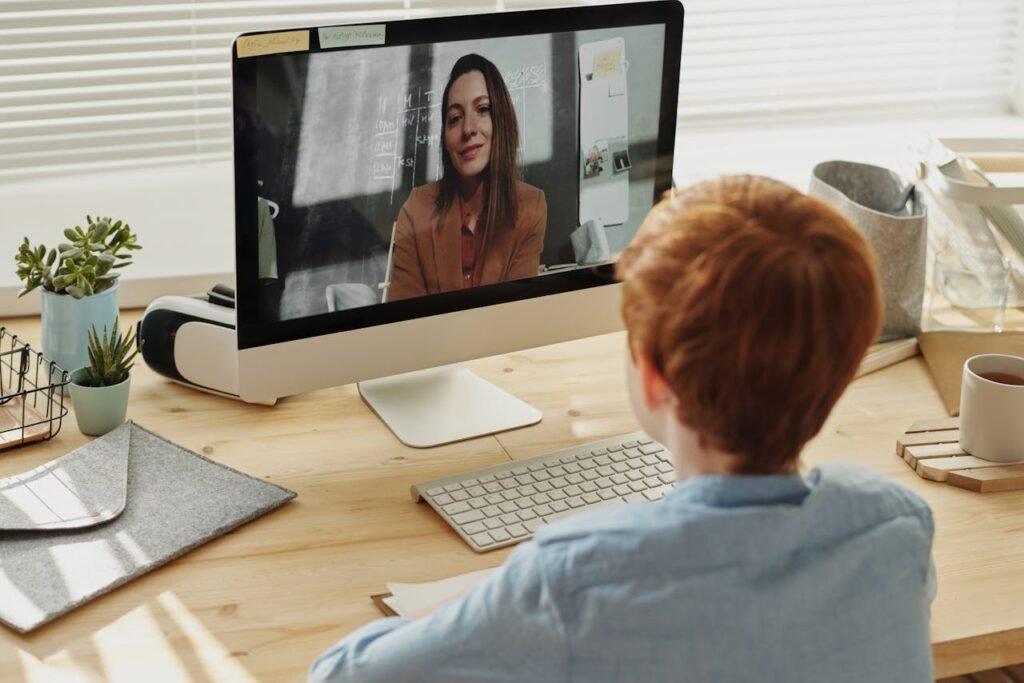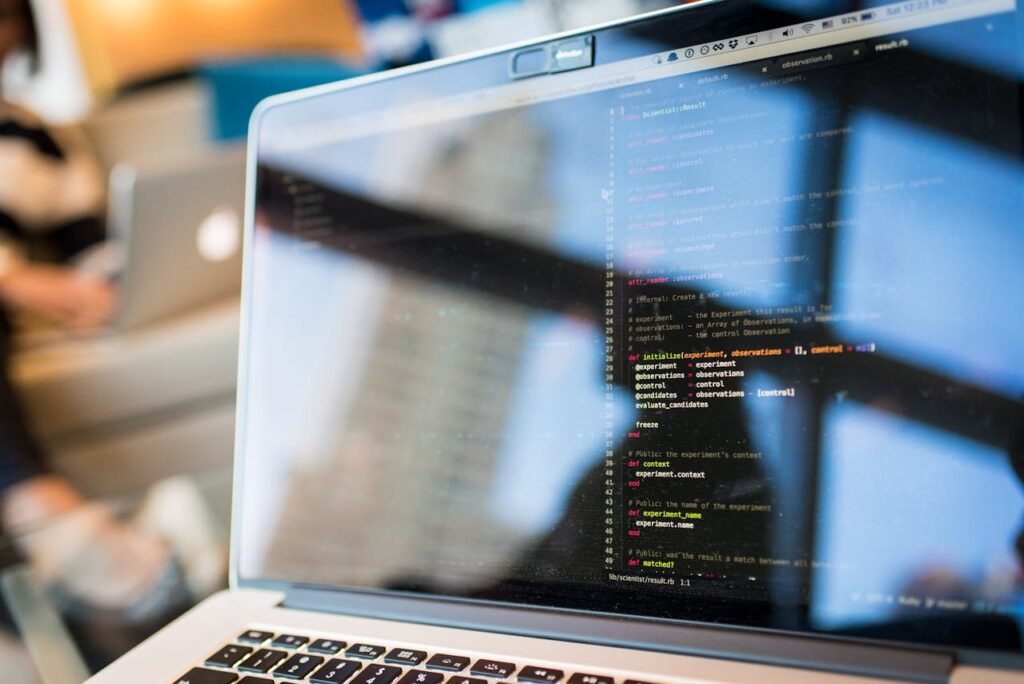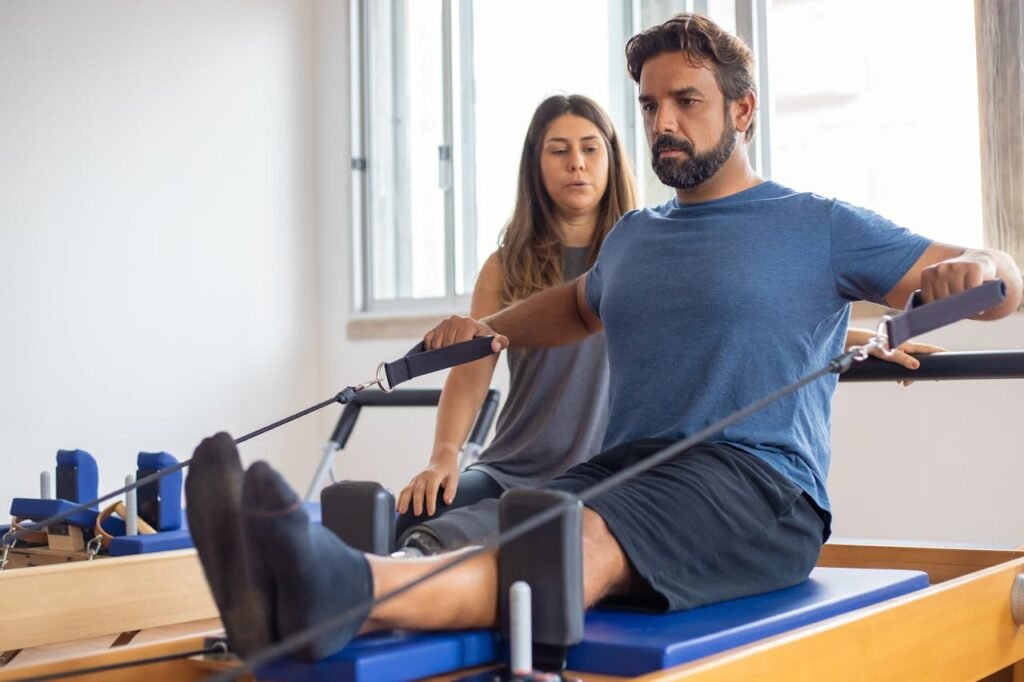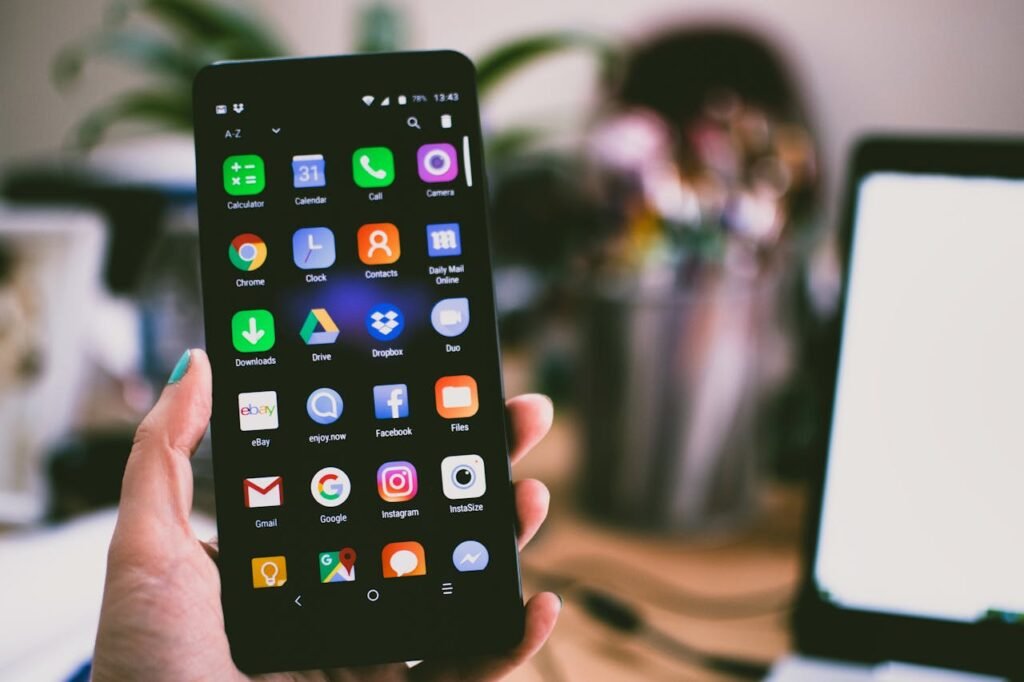In today’s world, technology has become a powerful ally in making life easier, more accessible, and more empowering for everyone. For people with disabilities, mobile apps are not just tools—they are gateways to independence, connection, and opportunity. Whether it’s navigating new places, communicating more effectively, or improving daily tasks, the right app can make a world of difference.
As technology evolves, so do the solutions designed for people with diverse needs. In this article, we’ll explore some of the best mobile apps in 2024 that are transforming lives by breaking down barriers and opening up new possibilities. From apps that assist with mobility to those that enhance communication or provide mental health support, this comprehensive guide will help you discover tools that suit your unique needs or those of your loved ones.
Accessibility Apps: Enhancing Communication and Interaction
For individuals with disabilities, communication is often the bridge to inclusion. Apps that enhance accessibility in communication have made incredible strides, enabling users to express themselves, connect with others, and engage with their surroundings.
Speech-to-Text and Text-to-Speech Apps
Speech-to-text apps, like Live Transcribe, are essential for individuals who are deaf or hard of hearing. This app offers real-time transcriptions of conversations, making it easier to follow discussions, whether at work, in social gatherings, or during appointments. With features like multi-language support and offline capabilities, it ensures communication isn’t restricted by location or network access.
On the other hand, text-to-speech apps like Voice Dream Reader cater to individuals with visual impairments or reading challenges. These apps read text aloud from emails, e-books, and websites, allowing users to engage with content effortlessly. With adjustable voice settings and compatibility across devices, text-to-speech tools are a game-changer.
Sign Language Translators
Innovative apps like SignAll are closing the communication gap between individuals who use sign language and those who don’t. By converting sign language gestures into text or speech in real time, these apps promote seamless interaction in personal and professional settings. The use of AI and gesture recognition technology makes them highly intuitive.
Mobility and Navigation Apps: Freedom to Move
Independence often begins with mobility, and mobility apps are now smarter than ever. These apps cater to people with physical disabilities by simplifying navigation, offering accessibility-friendly routes, and even controlling smart devices.
Health and Wellness Apps: Nurturing Mind and Body
Living with a disability often requires managing both physical and emotional well-being. Apps focused on health and wellness provide tools to track, improve, and nurture overall health.

Mental Health Support
Apps such as BetterHelp and Calm offer therapy and relaxation resources tailored for individuals with disabilities. Guided meditation sessions, soothing music, and easy-to-use interfaces make these apps a welcome source of support. Some even offer sessions focused on overcoming specific challenges like anxiety tied to physical limitations.
Fitness and Rehabilitation
Gamified fitness apps like Fitness for Amputees or MoveIt encourage individuals with physical disabilities to stay active through personalized workouts. Many of these apps integrate seamlessly with prosthetics, like Robobionics’ Grippy™, enabling users to monitor progress and stay motivated.
Vision Accessibility Apps: Seeing Beyond Barriers
For individuals with visual impairments, advancements in app technology are opening new windows to the world. Vision accessibility apps use artificial intelligence, optical character recognition (OCR), and advanced scanning features to assist users in navigating their surroundings and accessing information.
Object and Scene Recognition
Apps like Be My Eyes connect visually impaired users with volunteers or trained agents through video calls. Users can point their phone camera at an object, document, or scene, and the person on the other end describes what they see. This app is especially helpful for tasks like reading food labels, choosing outfits, or navigating new environments.
Similarly, Seeing AI, powered by Microsoft, uses AI to describe objects, scenes, and even people’s facial expressions. The app offers multiple channels, including text recognition, currency identification, and barcode scanning, making it a versatile tool for daily activities.
Digital Magnifiers and Readers
Apps such as Magnifier (built into iOS) or BigMagnify for Android act as digital magnifiers, enlarging text or objects captured by your phone’s camera. They include features like color contrast adjustments and flashlight options, making them ideal for users with low vision.
For individuals who want quick access to written content, OCR-powered apps like KNFB Reader convert printed text into audio or braille output, ensuring no important document goes unread.
Cognitive and Learning Support Apps: Unlocking Potential
Cognitive disabilities and learning challenges require tools that foster focus, memory, and adaptability. A variety of apps cater to these needs by providing structured assistance, reminders, and learning aids.
Building Skills Through Interactive Learning
One of the most significant advantages of cognitive support apps is their ability to create personalized, interactive learning experiences. For instance, apps that use gamification, such as CogniFit, combine entertainment with education to help users improve memory, focus, and problem-solving skills.
These apps are particularly effective in both personal and professional environments, where continual skill-building is vital. For businesses, encouraging employees to explore cognitive apps can result in a workforce that is both engaged and resilient.
To maximize the impact of these tools, organizations should provide structured time and resources for employees with cognitive disabilities to engage with such apps. Offering training sessions on how to integrate these apps into daily workflows can make a world of difference.

Enhancing Focus and Time Management
Cognitive challenges often come with difficulties in maintaining focus or managing time effectively. Apps like Focus@Will use neuroscience-backed techniques to create soundscapes that promote concentration. These tools are particularly helpful for individuals who struggle with sensory overload or require a controlled environment to focus.
For businesses, adopting these apps as part of an inclusive workspace strategy can lead to tangible benefits. For example, employees with ADHD may find it easier to manage tasks and deadlines when aided by structured tools that reduce distractions.
Supporting Executive Functioning Skills
Executive functions like planning, organizing, and decision-making are crucial in both personal and professional spheres. Apps like MindNode provide visual mind-mapping tools that help users break down complex tasks into manageable steps. These apps are especially beneficial for individuals who find traditional approaches to task management overwhelming.
For businesses, integrating such apps into team projects can promote inclusivity while improving collaboration. Managers should consider app-based tools during project planning phases, ensuring that all team members, regardless of cognitive ability, can contribute effectively.
Emotional Regulation and Stress Management
Cognitive disabilities often come with challenges related to emotional regulation. Apps like MoodPath and Woebot act as digital companions, offering daily check-ins, mood tracking, and even therapeutic conversations. These apps are not just for personal use; they can play a pivotal role in professional settings where emotional well-being directly impacts performance.
Organizations can take the lead by incorporating these apps into employee wellness programs. By recognizing the connection between emotional health and productivity, businesses can create a supportive culture that prioritizes mental well-being.
Empowering Through Accessibility Training
While apps are powerful tools, their full potential is realized when users are trained to utilize them effectively. Cognitive learning apps often come with a range of customizable settings, from language options to visual cues, ensuring they meet individual needs.
Businesses can play a proactive role by offering tailored training sessions that help employees maximize these features.
For example, holding an introductory session on AAC (Augmentative and Alternative Communication) apps like Proloquo2Go could empower employees with speech disabilities to communicate more effectively during team meetings.
Beyond internal use, businesses that work with clients with cognitive disabilities can use such training sessions to better understand their needs and adapt their services accordingly.

Employment and Skill-Building Apps: Opening New Doors
Technology is also playing a significant role in empowering individuals with disabilities to achieve professional goals and learn new skills. Employment-focused apps and platforms are bridging gaps in accessibility and opportunity.
Bridging the Accessibility Gap in Recruitment
The recruitment process can often be a challenging landscape for individuals with disabilities. From inaccessible job descriptions to biased hiring practices, traditional systems inadvertently exclude a vast pool of talented individuals.
Apps like Inclusively and Bender Consulting Services are addressing these issues by connecting people with disabilities to inclusive employers and simplifying the application process through user-friendly interfaces.
For businesses, adopting these platforms can be a game-changer in their quest to build a diverse team. Organizations that actively list their openings on such platforms not only gain access to a wider talent pool but also signal their commitment to inclusivity. Moreover, these apps provide tools to educate recruiters about accessibility best practices, ensuring a fair evaluation process.
Empowering Employees with Continuous Learning
One of the most significant ways businesses can support individuals with disabilities is by fostering a culture of continuous learning. Apps like Skillshare and Coursera offer accessible online learning environments with features like closed captions, screen reader compatibility, and flexible pacing options.
These apps allow users to learn new skills or deepen existing ones, which is especially critical for people whose disabilities may require them to adapt to non-traditional work roles.
Organizations can integrate these learning tools into their professional development programs, tailoring opportunities to individual needs.
For instance, an employee with a mobility challenge might thrive in a remote work environment where they can access skill-building apps to enhance technical competencies or creative talents. Providing these resources demonstrates a company’s commitment to empowering its workforce.
Promoting Independence with Digital Accessibility Tools
Employment apps today aren’t just about skill-building; they’re about making work environments accessible and empowering employees to succeed independently. Apps like AssistiveTouch or Switch Control provide individuals with physical disabilities the ability to navigate digital devices seamlessly, ensuring they can perform job-related tasks with minimal assistance.
By encouraging employees to use these accessibility tools, businesses can remove barriers that might otherwise hinder productivity. This approach not only boosts employee morale but also streamlines workflows by reducing reliance on external support.
Building Soft Skills for Workplace Success
While technical skills are critical, soft skills such as communication, teamwork, and problem-solving are equally essential for thriving in any professional environment. Apps like Elevate and Simply Learn use cognitive exercises and interactive lessons to help individuals refine these skills in an engaging manner.
Businesses can strategically incorporate such apps into onboarding and training programs for employees with disabilities, helping them navigate workplace dynamics more confidently. Additionally, soft-skill-focused apps can benefit teams by fostering better understanding and collaboration between employees with and without disabilities.

Creating Opportunities Through Entrepreneurship
For individuals with disabilities who may find traditional employment pathways limiting, apps focused on entrepreneurship offer a viable alternative. Platforms like Etsy and Canva empower users to start small businesses, showcasing their creativity and skills without requiring a physical storefront.
These apps provide intuitive design tools, online marketing capabilities, and built-in audiences, making it easier for users to launch and sustain their ventures.
Businesses can play a pivotal role here by supporting employees or community members interested in entrepreneurship. For instance, an organization could sponsor access to premium app features, offer business mentorship programs, or even partner with disabled entrepreneurs to showcase their products and services.
Entertainment and Social Connectivity: Building Joy and Belonging
Life isn’t just about tasks—it’s also about finding joy and staying connected with others. Entertainment and social apps are vital in reducing isolation and creating meaningful interactions.
Redefining Accessibility in Entertainment
Entertainment apps today go beyond simply delivering content; they actively cater to diverse abilities. Streaming platforms like Netflix and Disney+ now offer robust accessibility features such as audio descriptions, customizable subtitles, and voice navigation, making their libraries more inclusive.
Gaming apps, such as those by AbleGamers, provide adaptive features that allow users with mobility challenges to participate fully in virtual experiences.
For businesses in the media or tech industries, prioritizing these features isn’t just about compliance—it’s about broadening their audience and earning customer loyalty. By investing in accessible design, companies can engage a demographic that has historically been underserved.
Transforming Social Connectivity
Social connectivity apps like Clubhouse, Facebook, and Twitter are no longer generic communication tools; they are evolving to support inclusivity through features like alt-text for images, closed captions for videos, and screen-reader-friendly navigation. These platforms are critical for individuals with disabilities, as they provide safe spaces to connect with peers, share experiences, and build communities.
For businesses, supporting employees in their use of social connectivity tools can improve workplace morale and foster a sense of belonging. Offering workshops on leveraging social apps to create professional networks or engage with broader disability communities can help employees feel empowered and included.
Virtual Reality and Immersive Experiences
Virtual reality (VR) is breaking new ground in making entertainment and connectivity more immersive for people with disabilities. Apps like AltspaceVR allow users to interact in virtual environments, offering an unparalleled sense of presence and freedom.
These platforms are particularly transformative for individuals with mobility challenges, providing access to experiences they may not have in the physical world.
Businesses can tap into this technology to enhance both customer experiences and employee engagement. For instance, organizations can host virtual events that are fully accessible, using VR to remove barriers for attendees with physical or sensory impairments. Internally, VR can be used to create inclusive team-building activities, allowing employees to connect in creative ways.

Using Entertainment to Foster Inclusion
Entertainment apps are also a powerful way to bridge the gap between individuals with disabilities and their peers. Apps like Karaoke Anywhere or creative platforms like TikTok enable users to share their talents and interests, fostering a sense of belonging. These tools break down societal barriers by shifting the focus from limitations to abilities.
For businesses, integrating these apps into team activities can encourage camaraderie and empathy among employees. Hosting a virtual karaoke night or a short-video creation contest can be an engaging way to celebrate diversity while encouraging teamwork.
Breaking Barriers: The Role of Assistive Apps in Everyday Life
Assistive apps have grown far beyond being just tools for convenience—they are now integral to enabling independence, confidence, and inclusion for individuals with disabilities. From helping users navigate physical spaces to connecting with loved ones or securing jobs, these apps empower users to live life on their terms.
A Seamless Blend of Accessibility and Independence
Assistive apps work best when they empower users to perform everyday tasks independently. Apps like Seeing AI or Be My Eyes, which offer visual assistance through AI or real-time human support, exemplify this principle by enabling users to identify objects, read documents, and navigate new spaces.
For businesses, integrating such tools into customer-facing services can be a game-changer. For example, retailers could deploy apps that guide customers through stores using voice navigation or barcode recognition, ensuring a seamless and inclusive shopping experience.
Similarly, hospitality businesses could leverage these apps to provide visually impaired guests with tools to explore their facilities independently.
Building Accessibility into Workplaces
In professional environments, assistive apps are breaking barriers by ensuring that employees with disabilities can contribute fully and effectively.
For instance, text-to-speech and speech-to-text apps like Dragon NaturallySpeaking allow individuals with mobility or dexterity challenges to complete tasks hands-free, while apps like Otter.ai provide real-time transcription for team meetings, supporting employees with hearing impairments.
By integrating these tools into workplace systems, businesses can ensure that employees with disabilities have equal opportunities to thrive. The result is not only a more inclusive workforce but also enhanced overall productivity, as tools designed for accessibility often improve efficiency for all team members.
Transforming Customer Experiences
Assistive apps are equally valuable in enhancing customer interactions. Businesses that cater to diverse needs can use these tools to create smoother, more inclusive experiences.
For example, travel companies can integrate apps like WheelMate into their services to help customers find wheelchair-accessible routes and facilities. Meanwhile, food delivery services could use voice-controlled apps to make ordering easier for individuals with limited dexterity.
Such efforts not only demonstrate corporate responsibility but also help businesses tap into a wider customer base. By anticipating and addressing accessibility needs, companies can differentiate themselves in increasingly competitive markets.
Encouraging Personalization
One of the most powerful aspects of assistive apps is their ability to adapt to individual needs. Apps like Proloquo2Go, which enable non-verbal communication, are highly customizable, allowing users to tailor interfaces, vocabulary, and settings to their unique requirements. Similarly, mobility apps can be adjusted for route preferences or assistive device integration, enhancing usability.
For businesses, understanding the role of personalization in accessibility is key. Whether it’s offering flexible app settings for online platforms or customizing product features to complement assistive technologies, personalization sends a clear message: everyone’s experience matters.

Leveraging Data to Innovate
Assistive apps generate invaluable insights into the needs and preferences of their users. By analyzing anonymized usage data, developers can identify patterns that inform the creation of even more effective solutions. For businesses, partnering with assistive app developers can provide opportunities to leverage this data strategically.
For example, retail businesses could work with navigation app developers to analyze how customers with disabilities move through physical spaces, identifying bottlenecks or accessibility issues. Similarly, app data can inform training programs for customer-facing staff, ensuring that teams are prepared to meet the unique needs of all clients.
Conclusion
The year 2024 marks a pivotal moment for assistive technology. Apps are not only addressing specific challenges but also empowering individuals to lead richer, more connected lives. By leveraging these tools, people with disabilities can overcome barriers, nurture their potential, and embrace new opportunities.
At Robobionics, we believe that accessibility goes beyond technology—it’s about creating meaningful experiences that restore dignity and independence. Whether you’re exploring assistive apps or seeking innovative prosthetic solutions, we’re here to help you every step of the way.




Amazing Post